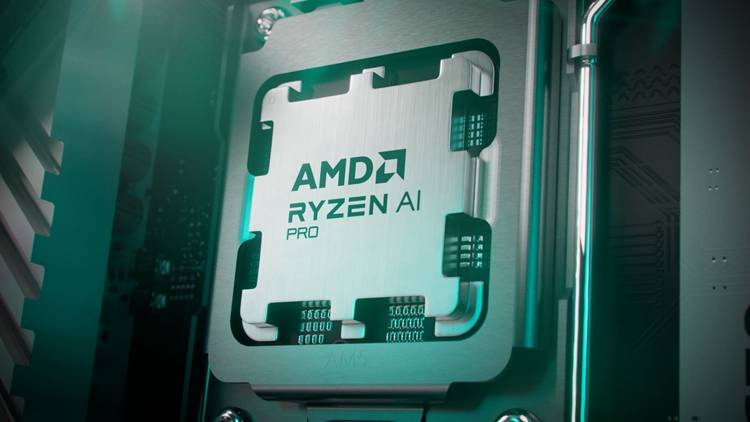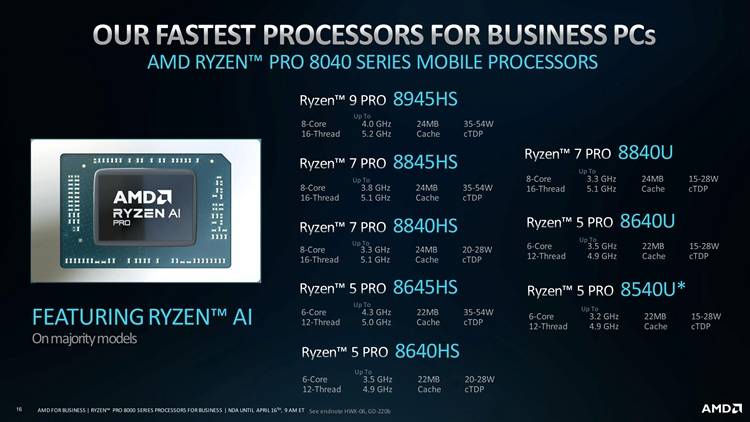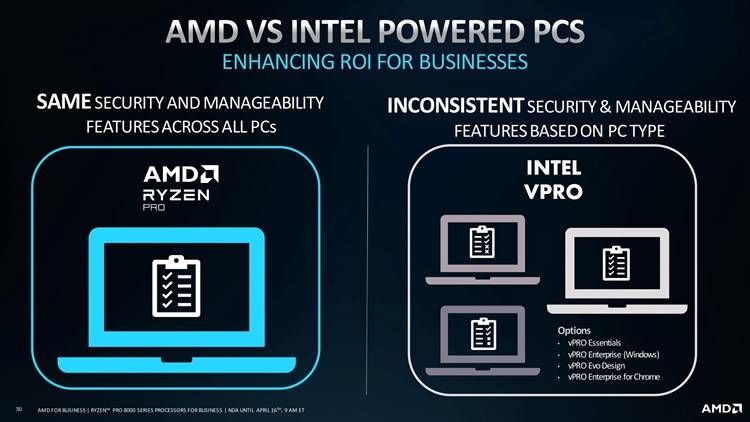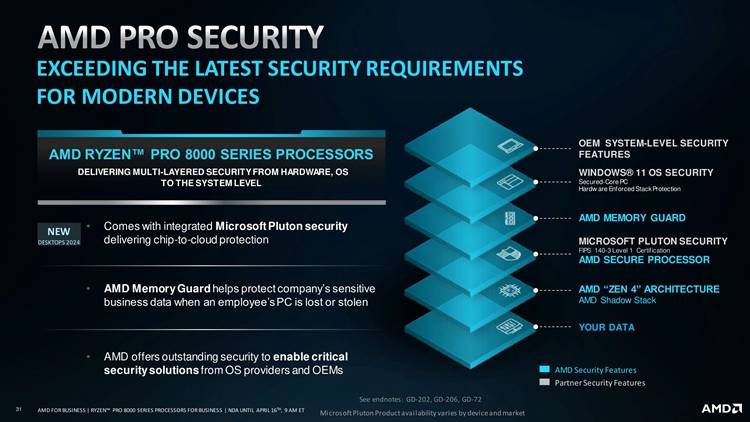AI has already begun to make strides in various fields, including the commercial sector. Previously, Intel had introduced the new generation vPro platform, featuring the Core Ultra processor. Of course, AMD is not willing to fall behind. Yesterday, they unveiled the new generation Ryzen PRO series processors, equipped with independent NPU units to bring AI into the commercial market, while also supporting various new communication technologies including WiFi 7.

AMD’s Ryzen PRO series processors include a total of 16 models, including the Ryzen 8040 series processors for mobile platforms and the Ryzen 8000 series processors for desktop platforms. Compared to the previous generation, this generation of Ryzen PRO processors has added the Ryzen AI engine, allowing the CPU to handle some AI tasks. In addition, both the CPU with Zen 4 architecture and the GPU with RDNA 3 architecture are not significantly different from consumer-grade Ryzen processors. The process remains at TSMC’s 4nm, supporting next-generation communication standards including WiFi 7 and Bluetooth 5.4.

In the Ryzen PRO 8040 series processors, the flagship version is the Ryzen 9 PRO 8945HS processor, featuring 8 cores and 16 threads, with a base frequency of 4.0GHz and a maximum frequency of up to 5.2GHz, with a cache of 24MB, and a power consumption range of 35-54W. The R7 PRO 8840U, on the other hand, is designed for high-end processors in thin and light commercial laptops, also with 8 cores and 16 threads, but with a base frequency of 3.1GHz and a power consumption range of 15-28W. In the desktop domain, the R7 PRO 8700G is the flagship version, with 8 cores and 16 threads, a frequency range of 4.2GHz-5.1GHz, a maximum power consumption of 65W, and also catering to energy-saving computers with the GE series processors, with a reduced power consumption of 35W.


Compared to traditional consumer-grade processors, AMD Ryzen PRO processors further enhance security, effectively protecting data at the hardware level, enabling enterprises to better manage work computers. Additionally, AMD has specially optimized common office software such as meeting software, providing a smoother user experience. AMD also introduced WiFi 7 laptops developed in collaboration with Lenovo and Qualcomm, increasing data transfer speeds by 60% and reducing latency by 50%. Laptops equipped with AMD Ryzen PRO processors will also be gradually introduced to the market, expanding their presence.